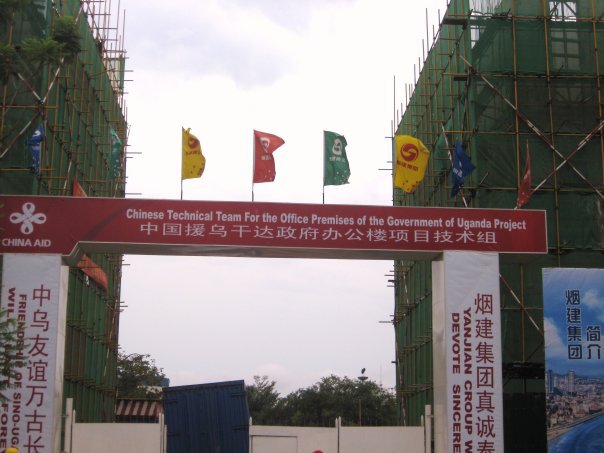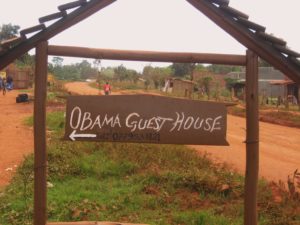
The New Presidential Office Building in Kampala – Photo Credit: J. Ketterer
This week I returned from a trip to Uganda. While there I saw evidence of the favorite topic of many in the international development community – the role of Chinese foreign assistance in Africa. Across the street from the parliament building is an enormous construction site with working ongoing 24 hours a day, 7 days a week. It is the new office building for the Ugandan president and the main costs have been donated by the Chinese government (an estimated $25 million, according to AllAfrica.com). Work began in 2009 and is set to be completed by spring of next year. The work is being carried out by a Chinese construction firm and it appears that the Chinese workers live across the street from the construction site. It is the latest building donated and constructed by the Chinese in Uganda. Just down the street from the current construction in Kampala’s city center is the building that houses the Ugandan Ministry of Foreign Affairs and on the outskirts of the city is Mandela National Stadium, both funded and constructed by the Chinese. These are large showpiece projects that make it clear that China is not only engaged in Africa but wants it engagement to be visible.
But China is not alone in that effort. Uganda is filled with signs and decals on vehicles with the wide variety of bilateral donors and international organizations. USAID, the UN, WFP, DANITA, IRC, the Carter Center and the World Bank are just a small sample of the logos seen in Kampala – or in just about every African capital. Yet people are accustomed to those organizations so little note is made of their continued and extensive presence. The Chinese projects, however, are the subject of much conversation with the unspoken undertone assuming something more conspiratorial. But perhaps China is doing what all states do: using foreign assistance as one tool to maximize their interests. The only difference is that they are relatively new to the game – and that they have a great deal of money to spend. As eye catching as the Chinese building donations are, the photo below shows that some public diplomacy happens on its own.

On the road from Bujagali Falls to Jinja – Photo Credit: J. Ketterer